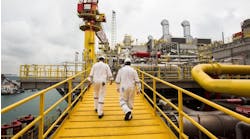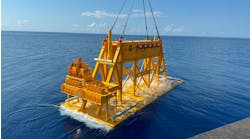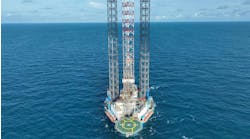“There’s life in the old girl yet.”
When it comes to questions over the future of the North Sea, not a truer word has been spoken. But, as larger operators begin to consider long-term options and to dispose of non-core UK continental shelf assets; smaller, independent operators are increasingly the key to safeguarding activity, with new entrants making up over 35% of the total capital invested in the sector. However, if they are to be successful, it is essential that new exploration and appraisal methods are considered to ensure activity remains viable.
With oil and gas activity buoyant around the world, pressure on resources means cost inflation remains a major threat to the competitive position of the UKCS, with the price of developing a new barrel of oil or gas having increased 15% and total operating costs having risen by £700 billion ($1.39 trillion) since 2006.
As exploration and appraisal activity continues to increase, few of the wells committed to in the UK’s 24th licensing round have been drilled and a large number of blocks have been offered in the 25th round. This appetite for new wells is set against an extremely tight rig market. Newbuild floating rigs are being aimed predominantly at the deepwater markets such as West Africa and Brazil, so North Sea rig supply is essentially flat and the day rates for contracting drilling rigs, particularly floaters, continue to soar. Although supply of jackup rigs is a little less tight, demand is still strong and these units too are commanding high day rates.
It is estimated that there are at least 70 E&A wells due to be drilled in the UKCS in 2008 – slightly down on the 111 E&A wells drilled last year due to a reduction in rig count. The soaring costs of drilling activity and lack of available drilling rigs causes major headaches for smaller operators struggling to schedule drilling programs for just one or two wells, leading to a growing backlog of well management projects.
So what’s the solution?
One thing is clear: the traditional approach of an individual operator hiring a rig on a short-term agreement for its own project is becoming increasingly difficult and in many cases is just not viable. As smaller operators enter the market, it is essential that they embrace a new way of doing things and take a more flexible approach to well management.
An alternative, more effective way of doing this is through collaborative projects.
Shared rig campaigns offer an effective solution to this problem. AGR Petroleum Services, as its former entity Peak, introduced the Rig Campaign model to the UKCS more than four years ago. Under this concept, a drilling rig is secured on a long-term contract (usually 12-18 months), attracting a lower day rate than a short term contract would demand, and a multi-well, multi-operator campaign is put together. By doing this through a third party, operators benefit from engineering expertise and cost savings due to the aggregated buying power created by the program and the efficiencies delivered through a continuous program.
Although the sequence of wells on rig campaigns is determined by a combination of factors, one key criterion is well location. Where possible, the order is decided with the well locations in mind to offer the shortest mobilization/demobilization times. In many cases, the same dedicated well team is retained for the whole program on a given rig and so the clients benefit from lessons learned.
While multi-operator, multi-well campaigns bring significant benefits to companies, it is also important that they are drill-ready. Only by having all the necessary paperwork and approvals in place will the company be best placed to take advantage of drilling rigs and well management program when they become available.
The North Sea certainly offers operators a long-term future, but the practices and methods that have been applied until now need to be adapted to ensure the longevity of activity in the UKCS. We are entering a new phase in the life of the oil and gas sector in the UK and it is vital that companies remain at the cutting edge of the industry.
Ian BurdisAGR
Petroleum Services
This page reflects viewpoints on the political, economic, cultural, technological, and environmental issues that shape the future of the petroleum industry. Offshore Magazine invites you to share your thoughts. Email your Beyond the Horizon manuscript to Eldon Ball at[email protected].


